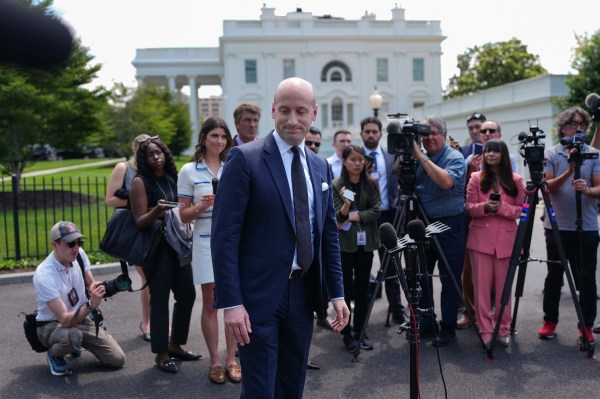There’s something tragically poetic about Elon Musk’s purchase of Twitter.
There’s a whole subculture of lamentation about modern society that can be fairly well summed up in Peter Thiel’s roughly decade-old gripe that things like Twitter were distracting us from greatness: “We wanted flying cars, instead we got 140 characters.”
Today, we get twice as many characters on Twitter, but the complaint endures. Not just innovation, but also exploration, have been subverted by screens and scrolling from our couches or porcelain thrones. Rather than go to the moon or Mars, our best minds focused on keeping you from putting down your phone.
For those who rejected that argument, Elon Musk was Exhibit A personified. Our generation’s Howard Hughes—in more ways than one—Musk built things, from electric cars to rockets. He even declared he wanted to die on Mars, as a kind of Martian Moses, delivering humanity to a promised land as an interplanetary species.
And now, he’s not distracted just by tweeting, which he does a lot, but also by his actual purchase of the company, for which he overpaid by tens of billions of dollars. The Twitter mascot is a mountain bluebird, but it may turn out to be an albatross. Or, he might succeed in modestly improving it, given how smart he is and how rancid Twitter already was.
So far, however, it’s been a debacle—though only partly of his own making. Musk is a visionary entrepreneur and engineer, but it turns out running a social media platform that has rarely been profitable doesn’t come as naturally to him as designing rockets. When he took over Twitter, he fired thousands of employees, only to discover he needed some of them and is now asking some to return.
Originally, he vowed to make the site, which he calls the “public square,” a paragon of free speech, only to discover that free speech absent content moderation quickly turns into a Bosch hellscape of demonic bigotry, performative cruelty, rumor, and disinformation.
Indeed, the mere promise of a new era of anything-goes expression on Twitter yielded a significant overnight spike in racist and antisemitic speech on the platform, even though Musk hadn’t changed any of the rules yet.
And this points to why his troubles are only partly of his own making. The users are part of the problem.
Just as some trolls rushed in on the promise of better days, many advertisers and quite a few influential liberals fled, or threatened to. Indeed, there was a kind of panic among the coterie of journalists and liberal activists who consider Twitter their rightful domain, an attitude that only fuels populist resentment on the site.
Meanwhile, on the right, jubilation over Musk’s takeover quickly gave way to rage over his troubles. Josh Holmes, a prominent political consultant, former chief of staff to Sen. Mitch McConnell, and normally fairly level-headed political observer, nonetheless suggested that companies pulling their advertising should face congressional grilling for “leftist corporate extortion” after the GOP takes over the House. I have no problem beating up on cowardly corporate chief executives, but I am at a loss as to why or how the federal government can compel corporate advertising.
Musk had many legitimate—and some farfetched—criticisms of Twitter under the old ownership. But what he seemed to miss is that Twitter was never a public square. Even in the Norman Rockwell version of the public square, there are enforceable laws and norms dictating what you can and can’t do there. Twitter is more like a “commons” in economic terms, where different actors want to take advantage of it for their own purposes. That can work when everyone agrees on the rules, but when such consensus is missing, you get the “tragedy of the commons.”
And that’s the core problem for Musk: America itself is suffering from a kind of tragedy of the commons. The hyper-politically engaged in this country believe that every institution—our laws, our government, big corporations, even churches and schools—should conform to their worldview. Not only is Twitter a pristine example of this dysfunction, it’s one of the chief drivers of it, because it allows people to treat one another as abstract avatars, not actual humans.
Back in April, when Musk first launched his bid for the company, Abe Greenwald, executive editor of Commentary, had the best explanation for why so many Twitter addicts were freaking out: “People believe Twitter is the real world. They therefore believe that Elon Musk is buying the world.”
It’s still a mystery why Musk bought Twitter, but maybe he did it because he was under the same impression?







Please note that we at The Dispatch hold ourselves, our work, and our commenters to a higher standard than other places on the internet. We welcome comments that foster genuine debate or discussion—including comments critical of us or our work—but responses that include ad hominem attacks on fellow Dispatch members or are intended to stoke fear and anger may be moderated.
With your membership, you only have the ability to comment on The Morning Dispatch articles. Consider upgrading to join the conversation everywhere.